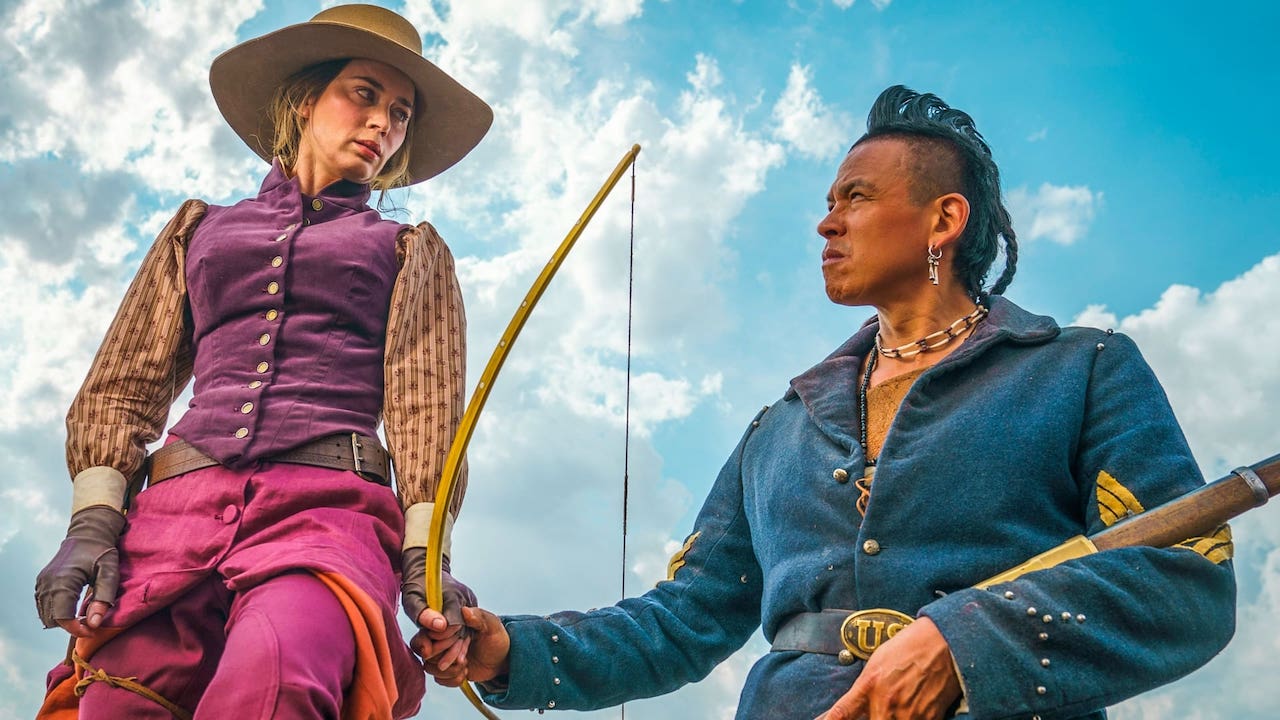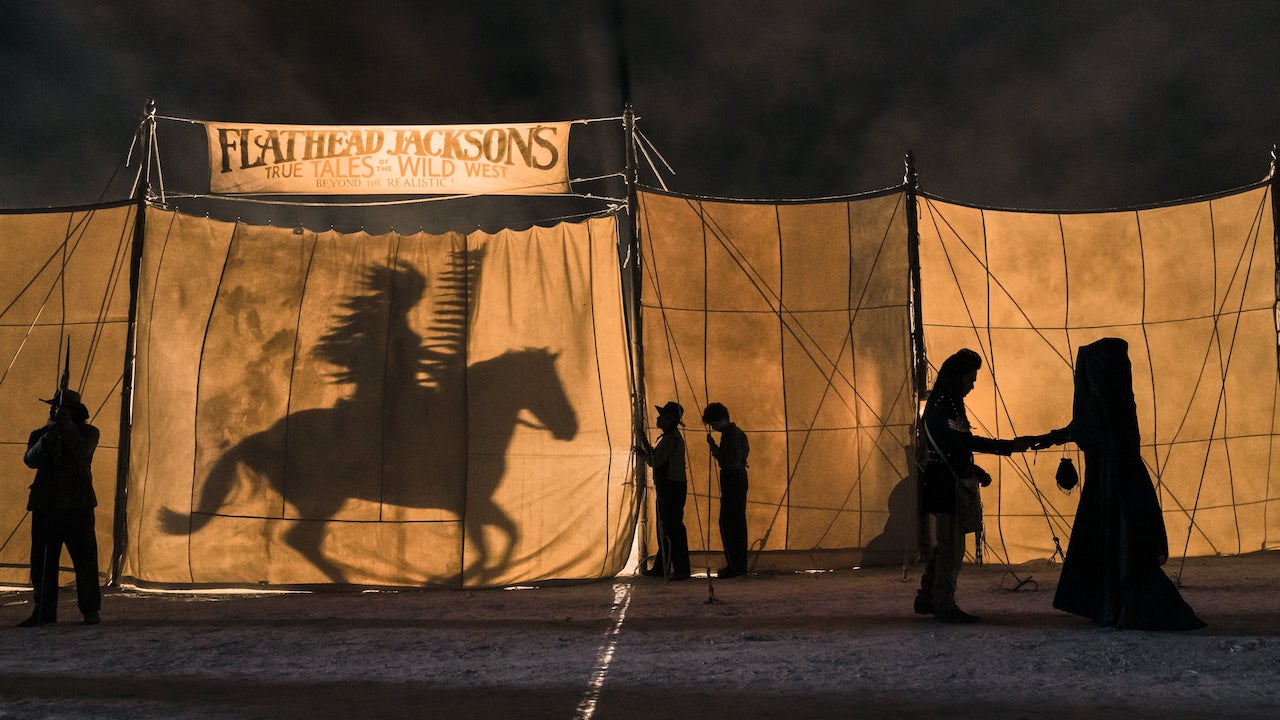Western revenge saga The English has a good go at lassoing and reclaiming its genre

It ain’t the embattled Native Americans who cause chaos in Prime Video’s dusty revenge miniseries: it’s The English, with Emily Blunt our only sympathetic foreigner in this here town. Here’s Lillian Crawford’s review of the emotive but sometimes distracted show.
At the very end of The English, footage of Buffalo Bill’s Wild West show and the first ever Western, made in 1899 by Sagar Mitchell and James Kenyon, is shown. Both illustrate a reductive and insensitive portrayal of Native Americans which has persisted in popular culture throughout the twentieth century.
It is an invitation to reflect on the series we have just watched, and how the depiction and memory of Native American dehumanisation and massacre has shaped western perception. It says that The English isn’t capable of overhauling that process in itself, but that it is working towards change.
The series is written and directed by Hugo Blick, whose previous television work has included The Honourable Woman (2014) and Black Earth Rising (2022). His stories have focused on exceptional, strong female protagonists, driven home by powerhouse performances by Maggie Gyllenhaal, Michaela Coel, and now Emily Blunt. Blick is a television director with a cinematic sensibility, not content to limit the epic scale of his stories to feature length. Indeed, The English sprawls out over six episodes across which the arcs of its protagonists are developed in impressive detail.
What is most impressive and significant about The English as a Western is the revisionism of its revival. The Indigenous character Eli Whipp AKA Wounded Wolf, played by Chaske Spencer, is no silent enemy or unknowable figure, but the centre of Blick’s narrative and equal companion to Blunt’s Lady Cornelia Locke. It’s a relationship seldom if never seen before in the Western, overturning the tropes which have largely relegated the heyday of the genre to a bygone cinematic era.
The English is set in 1890 when Eli has been displaced by settlers of his home and is heading to Nebraska to claim land owed to him for his service in the US army cavalry. Cornelia meets him on her own journey, arriving in Kansas from England as she searches for the man she holds responsible for her son’s death, where a horrifying Mr Watts (Ciarán Hinds) is torturing Eli. Watts has been instructed to kill Cornelia and frame Eli for the murder, and after some stomach-churning violence (which persists throughout the series), the two of them become caught in an unbreakable bond.

The relationship between Eli and Cornelia is never a simple one, as it could never be, but in its complication it becomes something wholly new and beautiful. Throughout the six episodes of The English, the two characters and the respective performances of Spencer and Blunt become the constant star needed to anchor interest in the broader theatre Blick plays out. It is in this respect that television lets down the emotional core, throwing distraction from every possible angle which fills the sparse American landscape with a characterful supporting cast. They come and go with such regularity it can be hard to develop connections outside of the two leads.
Of that band of passing villains, Rafe Spall’s performance as David Melmont stands out. It is sinister if somewhat pantomime, lavishly dressed and waving swords and canes about as he menaces behind circular sunglasses. His evil is truly nauseating, and one which emboldens Blunt in particular as she explodes into a channel of vengeance which puts even John Wayne to shame. And what a stage it is for these actors to show off their talents, the stark terrain gorgeously shot by cinematographer Arnau Valls Colomer and scored to perfection by Federico Jusid.
There are more questions that need to be answered, and as the series announces itself to be interrogating the myths of the Old West, one wishes that Blick had gone several steps further. But as a return to the Western, The English is a very good start.

















